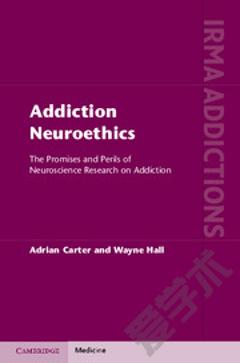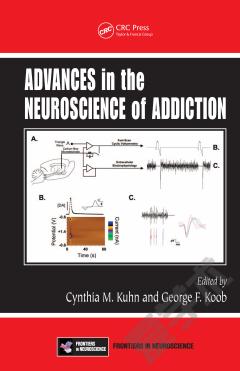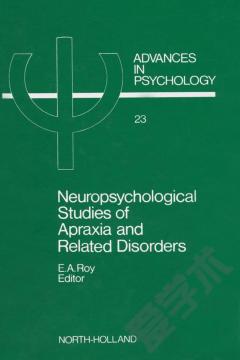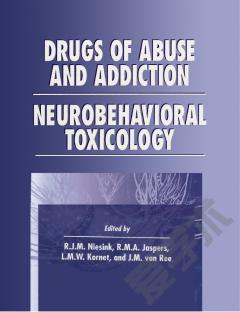Addiction Neuroethics: The Promises and Perils of Neuroscience Research on Addiction
Drug addiction is a significant problem facing most societies. It is associated with increased violence, crime and mental illness, and is one of the leading causes of preventable mortality and disability in most developed societies, accounting for over 12% of the total burden of disease (Begg et al., 2007). Neuroscience promises to significantly reduce the incidence and severity of addictive drug use, and the harm that it causes, by providing more effective and better targeted treatment of addiction (Volkow and Li, 2005). Proponents argue that an increased understanding of the neurobiological basis of drug addiction will also lend support for more humane social policies. These policies will recognise that addiction is a neuropsychiatric condition that should be treated therapeutically, leading to increased investment in addiction research and treatment (Dackis and O'Brien, 2005; McLellan et al., 2000). Optimism about the benefits of an understanding of the neurobiological basis of addiction needs to be tempered by more critical considerations. Overly simplistic interpretations of what this kind of approach reveals about addiction could result in less welcome consequences, especially if inappropriate use is made of emerging neurotechnologies, such as coerced use of naltrexone implants, population-wide vaccination programs against addiction, or the promotion of heroic âcuresâ for addiction, such as neurosurgery and deep brain stimulation. This thesis examines both the potentially welcome and unwelcome uses of neurobiological research of addiction with the aims of maximising the benefits, while minimizing any unanticipated harms. I refer to this as Addiction Neuroethics. The primary aims are to examine: (1) the impact that neuroscience research may have upon our understanding of autonomy and self-control in addicted individuals, (2) the implications this understanding may have for how we treat individuals with an addiction; and (3) the conditions under which it would be ethically acceptable to use various technologies emerging from this research. This thesis falls into three parts. First, a concise and accessible summary of the key findings of recent genetic and neuroscience research of addiction is provided. This includes the neuroanatomy of addiction (e.g. the mesolimbic reward pathway), the molecular and cellular biology of addiction, neurocognitive changes, and the role of genetic and environmental vulnerabilities. The second part of this thesis explores how neuroscience research may influence the way that modern societies think about drug use and addiction, and deal with those that suffer from it. This section addresses the central question: do addicted persons have the capacity to make autonomous decisions regarding their own drug use? This raises a number of additional questions. How much responsibility and blame should we attribute to addicted individualâs for their actions? How should society deal with addicted persons, or respond to the harm that they cause? Should society coerce addicted individuals into treatment, and if so, under what conditions? The third part of this thesis examines the ethical issues raised by the use of powerful new technologies that are emerging from neurobiological research on addiction, such as novel psychopharmacologies, depot implants, drug vaccines, neurosurgery and brain stimulation, neuroimaging and genetic testing. The report also considers the more speculative possibility that addiction neurobiology may improve our ability to prevent the development of addiction, for example, by using genetic screening to identify individuals at high risk of addiction and âdrug vaccinesâ to prevent these individuals from becoming addicted. This thesis demonstrates that the chronic use of addictive drugs has significant impacts upon key decision-making regions of the brain (e.g. motivation, memory, impulse inhibition) that affect addicted individuals ability to choose not to use drugs. While the autonomy of addicted individuals is impaired in certain situations, and to varying degrees, it is not extinguished. Rather than deny autonomy, we should aim to engage addicted individuals in ways that increase their autonomy. For example, coerced treatment of addiction may be a valid approach to getting addicted individuals in treatment. However we should avoid overriding the autonomy of addicted individuals by offering treatment as an alternative to punishment for some crimes (e.g. theft to fund drug habit). Such treatment should aim to treat a medical condition, and not be a form of extrajudicial punishment. Addiction is a highly stigmatised condition. This can significantly impact upon the way in which neuroscience research is understood and applied. Scientists, clinicians and policy makers must be mindful of over-enthusiastic applications of novel technologies that may be prematurely embraced and promoted to a desperate and vulnerable population without proper evaluation of the risks, or without considering how these technologies may be used once approved. The treatment of addiction should be judged by its efficacy and safety, as for any other medical treatment. Addicted individuals should be treated as any other individual suffering from a medical condition. The thesis concludes with some general suggestions about the directions in which this debate is likely to develop and identifies areas that will require further analysis and empirical investigation.
{{comment.content}}








 京公网安备 11010802027623号
京公网安备 11010802027623号